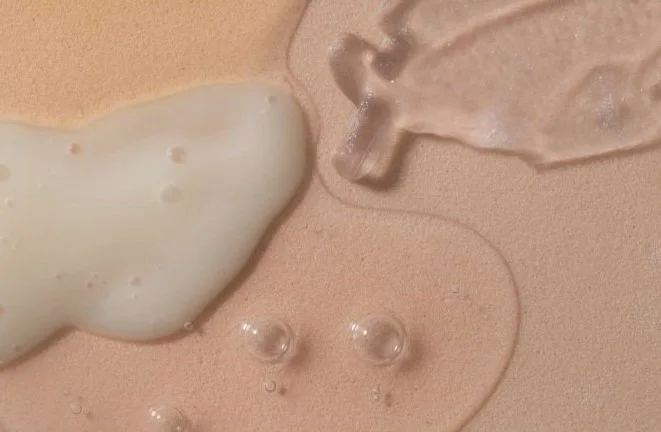Summer Skincare Routine: Your Guide to Adapting Your Skincare for Hot Weather
The heat is here, time to swith up your skincare routine to make it more suitable for the warmer months. Our skin changes during spring and summer to adapt to the heat, this gives rise to different skin needs. And as we all aknow different skin needs=different skincare This article will briefly summarise how we can modify our skincare routine to make it more suitable for the heat.
1.Lightweight Moisturizers for the heat: Avoid Heavy Occlusives
Occlusive moisturisers like petroleum jelly are great for winter skincare. They form a thick hydrophobic layer on the skin that prevents transepidermal water loss(TEWL) which is the process by which skin evaporates from your skin's surface) and moisturises your skin. Occlusives prevent heat loss, which helps keep warm during the winter. Having a thick layer of occlusive moisturisers on the skin during summer can leave you feeling hot and leave a sticky feeling on the skin. Remember your skin is naturally stickier during summer because of increased sebum production.
Your skin still requires proper hydration during warmer months. Do not make the mistake of ditching moisturising completely. Increased production of sweat and water loss from the skin to cool the skin, can cause skin dryness. So the point isn’t to ditch moisturisers completely and dry out the skin more. Instead, maintain skin hydration by opting for thinner and lighter emollients and lightweight moisturizers that won't feel heavy on the skin.
2. Wear Sunscreen Daily
Summer comes with an increase in Ultraviolet(UV) radiation. As we know, UV radiation excites free radicals on the skin causing oxidation. This leads to skin aging and dark sports. Although the sun emits UV radiation throughout the year, UV radiation levels are significantly higher in the summer. It is therefore particularly important to wear sunscreen during the warmer months. Also, always remember to reapply your sunscreen, especially if you’re using chemical sunscreen. Chemical sunscreen works by absorbing UV radiation and converting it into heat. The more UV radiation it converts, the more it degrades. Chemical sunscreen therefore requires frequent reapplication. If you opt for a chemical sunscreen, remember to reapply frequently.
Physical sunscreens, on the other hand, work by forming a film that reflects UV rays. Physical sunscreen also requires reapplication as the filter may be washed off or rubbed off with time. Reapplication is important to ensure all day, even UV protection all over the face.
Also, remember to apply sunscreen on your body in areas exposed to the sun.
Not applying and reapplying your sunscreen properly may lead to skin damage, sun burn or sun-induced hyperpigmentation.
3. Introduce Antioxidants to Your Routine
A free radical is a chemical species possessing an unpaired electron. Free radicals are formed in the skin when UV rays excite molecules/atoms, causing them to lose an electron, or causing molecules to split. Redox reactions in the skin usually balance out the free radicals, keeping them in their physiological concentrations required for normal cell function. Oxidative stress is the state where free radicals are being formed faster than the body is degrading them. Oxidative stress damages the skin, causes ageing, hyperpigmentation and more. Furthermore, free radicals can react with skin DNA causing mutations and possibly skin cancer.
Free radicals are stabilized by introducing molecules that reduce them, known as antioxidants. Antioxidants donate electrons to stabilize and neutralize free radicals. Common antioxidants used in skincare include vitamin C, vitamin E, vitamin A, etc. Using these molecules in your skincare routine, especially in summer, will help you minimise the effects of UV radiation on the skin.
4. Keep Your Skin Cool and aerated
More heat=more sweat. As mentioned, our skin produces more sebum and sweat during the summer. Sweat mixed with sebum and dirt creates a sticky feel on your skin. Furthermore, when sweat fails to evaporate from the skin, it gets trapped in the pores. This can feel very uncomfortable. The key? Let your skin cool off by wearing thinner material, short sleeve clothes etc. This will help sweat evaporate and prevent your skin from feeling sticky or getting a heat rash.

